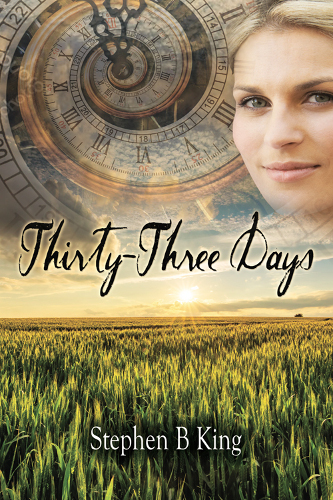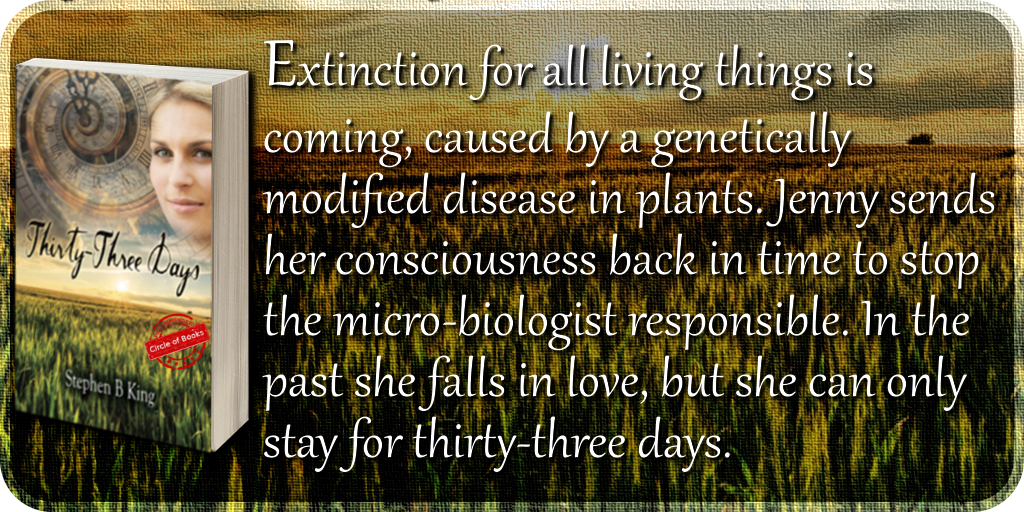Thirty-Three Days
by Stephen B King

Know More
Jenny is a lonely university lecturer who’s consciousness has traveled back in time to her younger body to try to save the future of the world. A young microbiologist is going to release a genetically modified wheat that will mutate and ultimately destroy all plant life, leaving nothing but barren windswept dust bowls.
In the past, Jenny finds a love that has been missing from her life; the kind that comes just once in a lifetime. But Jenny can only stay in that time period for thirty-three days.
Meanwhile, in the future, fearful Jenny will fail, plans are made to send another back in time–an assassin. How can she choose between saving the man she loves or saving the future?
A Word from the Author
 Thirty-Three Days came to me in a dream, which was unusual because I don’t normally dream, or if I do, they are nonsense. But, I woke up in a state of euphoria having dreamt of Jenny, a lonely 68-year-old university environmental lecturer. She is approached by a man who says he is the sixth in a line of people who played leapfrog through time to meet and convince her to save the future of mankind from a Blight, which is destroying all plant life two hundred years in the future.
Thirty-Three Days came to me in a dream, which was unusual because I don’t normally dream, or if I do, they are nonsense. But, I woke up in a state of euphoria having dreamt of Jenny, a lonely 68-year-old university environmental lecturer. She is approached by a man who says he is the sixth in a line of people who played leapfrog through time to meet and convince her to save the future of mankind from a Blight, which is destroying all plant life two hundred years in the future.
She agrees to take a drug and will wake up thirty-three years younger, but for only thirty-three days, when the dose will wear off. There, she must convince a young micro-biologist not to release his genetically modified strain of wheat, which harbors the deadly disease in its structure.
In the past, she falls in love for the first time in her life with his father, and must convince them of her sincerity before her consciousness departs back to the future, leaving her with no memory of the preceding month. If she fails, the ‘committee’ will send an assassin and she is torn between saving the planet, or the man she loves who is destined to die.
The risks involved in Genetic Modification of food is the critical core of this plotline. Jenny believes that environmentally, the road to Hell is paved with good intentions, that whenever Man dabbles in altering nature it often goes poorly. When I was researching, I found many such cases. For example, here in Western Australia a farmer sued his neighbour when he lost his organic certification because a genetically modified strain of Canola had spread from one farm to the other, and contaminated the soil.
So, Jenny has a chance so save every living thing in the future by going back in time to stop an event, before it happens. Can she succeed? And can she somehow find a way to keep the love that took her thirty-three years to find?
(Stephen B King, August 2018)
Get It
Tweet
